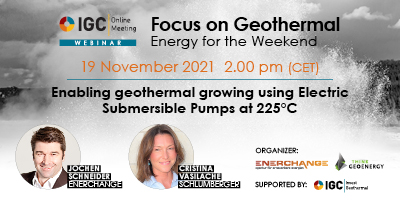Estonia to kick off exploration campaign for sedimentary-hosted geothermal
Energy Disrupter
The Estonian Geological Service is kicking off Project “Avatar” which aims to identify geothermal resources in subsurface sedimentary formations.
The Ministry of Climate of Estonia, within the framework of the Estonian Geological Service, has approved the unique pilot project “Avatar” which aims to better understand geothermal resources hosted in sedimentary bodies. The goal is to have a pilot plant built by 2026 while evaluating the technical possibilities and economic profitability of geothermal.
“It is a research-intensive and unique project that helps us better understand Estonia’s natural resources. Geothermal energy is thermal energy in the ground, which we can use to reduce carbon dioxide emissions, increase energy security and promote economic growth while keeping nature clean,” commented Kristen Michal, Minister of Climate.
The project aims to identify locations suitable for harnessing geothermal energy from sedimentary formation, and evaluate whether such solutions are feasible technically and economically in Estonia. The project will be implemented by the Estonian Geological Service and will be financed by the State Budget Strategy 2024-2027 under the “Supporting pilot projects for the purposes of climate and energy policy” program with a budget of up to EUR 1.25 million over three years.
The work will being in the second quarter of 2024, where geologically suitable areas for the pilot plant will be identified. Tests will then be carried out, including geophysical measurements, before the construction of the pilot plant starts.
Aivar Auväärt, head of the subsurface energy department of the Estonian Geological Service, emphasizes the value of studying all known possibilities for producing geothermal energy. “Heat energy located in ice age sediments is one of the possible solutions, in which, if there are suitable geological conditions, it is possible to heat and cool even larger buildings.”
“We will get accurate data as the research progresses, but preliminary forecasts give us the courage to expect that this will mean many times lower heating costs for the consumer.”
“Looking to the future, one of the important opportunities of the project is to ensure Estonia’s energy demand as well as the EU’s, while at the same time reducing dependence on fossil fuels and mitigating the effects of climate change. In addition, one of the important advantages of geothermal energy is its reliability,” added Helena Gailan, Advisor to the Department of Mineral Resources of the Ministry of Climate.
In late 2023, the Estonian Government and the Estonian Geological Service commissioned the drilling of five geothermal boreholes in Roosna-Alliku in Järva County. This project will provide environmentally friendly heat for several local buildings including a kindergarten, school, municipality government building, and an apartment association.
Source: Estonian Geological Service

















